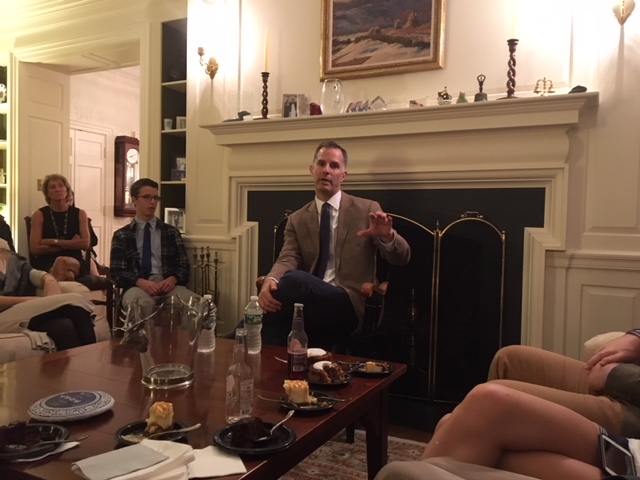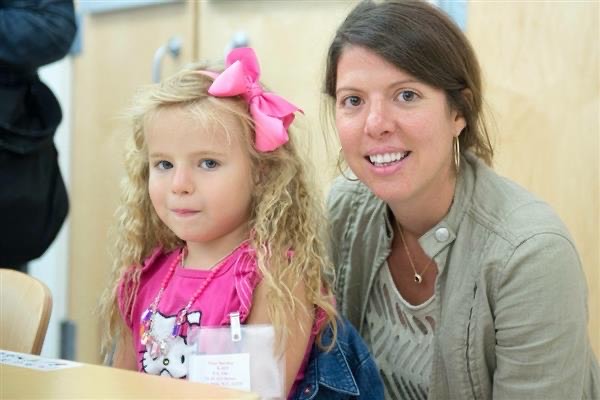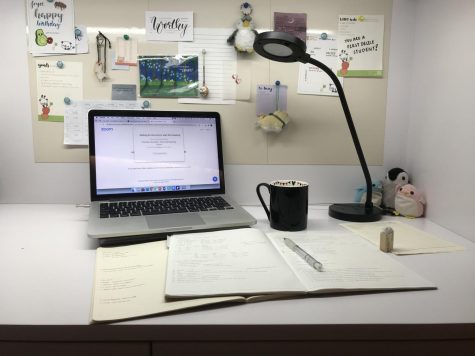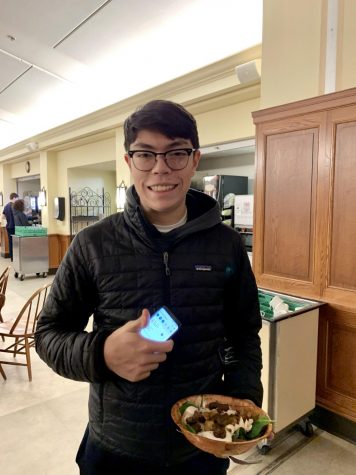Sanderson Lectures bring the world to Kent
Sanderson, right, met with history students and faculty the night before the lectures.
October 13, 2017
For the past four years, Thomas Sanderson, the Director of the CSIS Transnational Threats Project, has come to Kent from Washington D.C. to give the annual Cyrus Vance lecture on global issues.
This year, on Friday, September 29, Sanderson presented lectures on U.S. Foreign Policy, Systemic Pressures, Terrorism, and Great Power Rivalries. Students were required to go to two lectures, but were encouraged to go to as many as possible.
In addition to these lectures, students participating in Model UN or certain history classes were invited to the headmaster’s house for a dessert reception with Sanderson. During the reception, Sanderson spoke about his work at CSIS and answered students’ questions.
The first session was a global overview of U.S. Foreign Policy. Sanderson started the lecture off by describing the strain placed on the U.S. government from the tension with China, North Korea, and Russia and the conflict with ISIS. He then explained the need for cooperation between the world’s superpowers against issues like ISIS migrating back to their original 120 countries, Myanmar’s oppression of its muslim minority, and climate change.
In his second session, Sanderson spoke about the “Youth Bulge” phenomenon. The “Youth bulge” is when a population’s child mortality rates decline and its birth rates remain consistent. Normally a blessing for developed countries like the US, Sanderson examines its implications on less-developed countries. He painted a vivid, sobering picture of governments unable to support their populations, families turning to illegal means to support themselves, and children becoming refugees to escape what should be their homes.
For his third session, Mr. Sanderson spoke about Global Terrorism. To emphasize the far-reach of terrorism and broaden students’ understanding of terrorism beyond the American scope, he brought his pictures of terrorism’s devastating wake in the Middle East and spoke about its influences in the European theater. He then specified about various terrorist groups including ISIS, known for its far-reaching influence, and Al-Qaeda, credited for the 9/11 attacks.
In his fourth lecture, Mr. Sanderson addressed contemporary conflicts between the U.S., Russia, China, and North Korea. He first described China as a “rising country retaking its central place in Asia,” and mentioned its tremendous economic growth as well as its disputes with Taiwan’s sovereignty and Japan’s Diaoyu Islands. He then shifted to Russia, which is suffering from depopulation, crumbling economics, and widespread food shortage. He also spoke about Russia’s incredible reserve of fresh water Lake Baikal and its dependency on oil. Lastly, Sanderson turned the discussion to North Korea and laid out North Korea’s missile capabilities and America’s potential defenses, complete with videos of missile defense systems.
For students and faculty alike, who can tend to develop a laser-like focus on life inside “The Kent Bubble,” these lectures offered an opportunity consider our role in the world at large.







